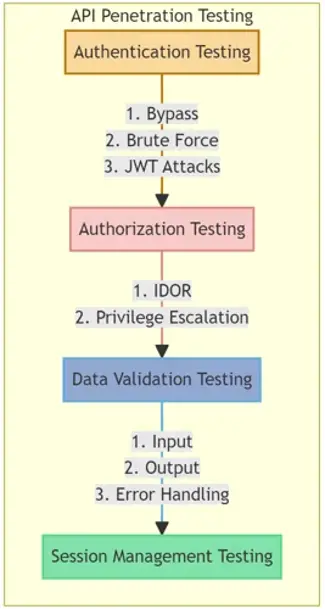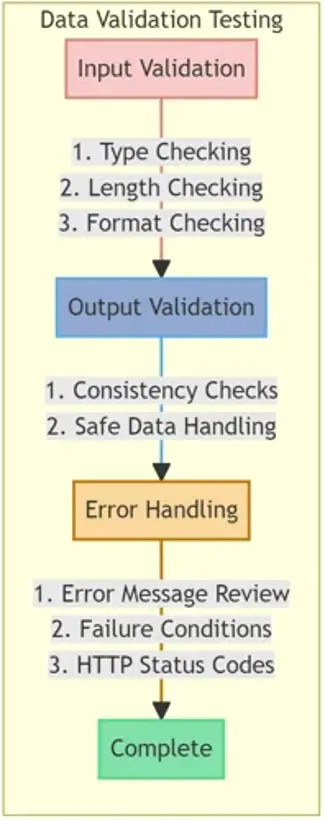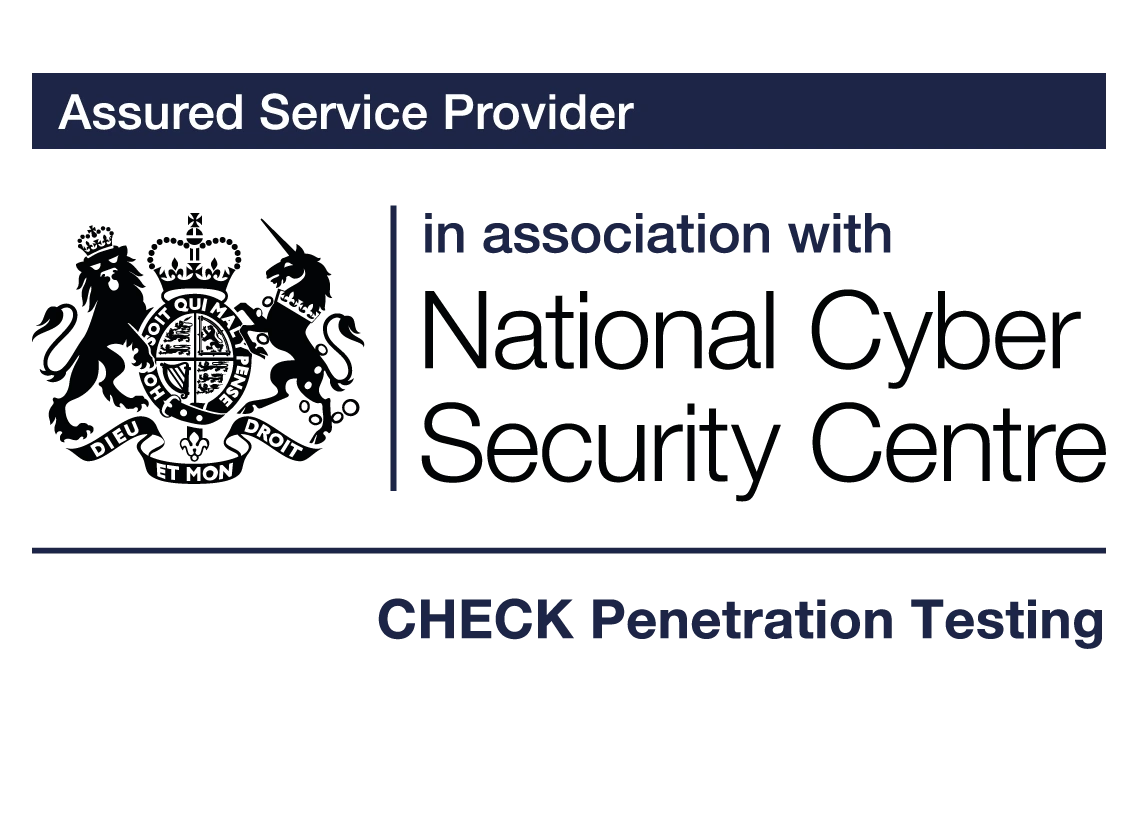What Is API Security Testing?
API Security Testing is a critical component in the cyber-security landscape that focuses on evaluating the robustness, reliability, and resilience of Application Programming Interface (API) endpoints against potential cyber threats and unauthorized access. This process helps in identifying vulnerabilities within the APIs that could possibly be exploited by malicious actors, ensuring that the APIs are secured to meet the requisite security standards.
Understanding the Importance of API Security Testing
In the digital age, APIs are the glue that holds together the vast array of web services and applications. They act as gateways that allow different software systems to communicate with each other. However, this also makes them a lucrative target for cyber adversaries. A breach in API security can lead to data leakage, unauthorized access, and other severe security incidents.

Core Components of API Security Testing
API Security Testing comprises various core components that collectively contribute to a thorough evaluation of API security posture. Some of these components include:
- Authentication Testing: Verifying that only authorized entities can access the API endpoints.Authorization Testing:Ensuring that authenticated users have the appropriate permissions to access resources.
- Data Validation Testing: Checking that the API handles data correctly and sanitizes input to prevent injection attacks.
- Session Management Testing: Evaluating the effectiveness of session handling and token management.

Common Vulnerabilities in APIs
APIs, like other software components, are susceptible to a range of vulnerabilities. Some common vulnerabilities include:
- Sensitive Data Exposure: Inadequate security measures can lead to exposure of sensitive data.
- Broken Authentication: Flawed authentication processes can allow unauthorized access.
- Insecure Direct Object References (IDOR): Poorly implemented object references can be manipulated to access unauthorized data.

In-Depth into Authentication and Authorization Testing
Authentication and Authorization are the front-line defenses against unauthorized access to your APIs. Understanding the difference and implementing robust testing for both is crucial.
Authentication Testing:
Authentication is the process of verifying the identity of a user, application, or system. In API Security Testing, it's essential to ensure that only legitimate entities can access your API endpoints.
- Testing for Weak Passwords: Check for commonly used or easily guessable passwords.
- Testing for Credential Leakage: Ensure credentials are not leaked in URLs, error messages, or logs

Authorization Testing:
Authorization, on the other hand, determines what actions or resources the authenticated user can access. It's about verifying the permissions of a user once they are authenticated.
- Testing Role-based Access Controls (RBAC): Ensure that different user roles have the appropriate level of access to resources.
- Testing for Insecure Direct Object References (IDOR): Ensure that users cannot access resources they are not supposed to by manipulating input or changing resource URLs.
Delving into Data Validation and Session Management Testing
Ensuring that your API correctly handles data and manages sessions is crucial for security.
- Data Validation Testing:Robust data validation is essential to prevent injection attacks and ensure that the API behaves as expected.
- Testing for SQL Injection: Ensure that your API is protected against SQL injection attacks by checking for unexpected behavior when passing SQL special characters.
- Testing for Cross-Site Scripting (XSS): Check for instances where unsanitized input is returned in the response.

Session Management Testing:
Effective session management is crucial for maintaining the security of interactive sessions.
- Testing Token Generation: Evaluate the randomness and unpredictability of session tokens.
- Testing Token Storage: Ensure that tokens are stored securely and are not leaked through logs, URLs, or error messages.
Mitigation Strategies
Implementing robust security measures can significantly mitigate the risks associated with API vulnerabilities. Some mitigation strategies include:
- Utilizing HTTPS for secure communication.
- Employing OAuth for secure authorization.
- Implementing input validation to prevent injection attacks.
Tools for API Security Testing
There are numerous tools available for conducting thorough API security testing. Some popular tools include:
- Postman for API testing and development.
- OWASP ZAP for automated security testing.
- Burp Suite for security auditing.
Engaging with Penetration Testing
Penetration testing is an advanced form of API security testing where ethical hackers attempt to exploit known vulnerabilities in the system, mimicking the actions of malicious actors.
- Identifying Targets: Determine the scope of the penetration test by identifying the targets.
- Vulnerability Assessment: Conduct a vulnerability assessment to identify known vulnerabilities.
- Exploitation: Attempt to exploit the identified vulnerabilities to understand the potential impact.
Continuous Monitoring and Reporting
Continuous monitoring and timely reporting are essential for maintaining a robust security posture and ensuring compliance with regulatory requirements.
- Monitoring: Continuously monitor API endpoints for unusual activity.
- Reporting: Generate regular security reports to keep stakeholders informed about the security status of APIs.
Latest Trends in API Security Testing
API Security Testing is an evolving field with new methodologies, tools, and best practices emerging to address the evolving threat landscape. Staying updated with the latest trends is crucial for ensuring the utmost security of your APIs.
- Automated API Security Testing:Automation plays a vital role in modern API Security Testing, enabling organizations to perform thorough and consistent testing at scale.
- Continuous Integration/Continuous Deployment (CI/CD): Incorporate API security testing within your CI/CD pipeline to catch security issues early in the development lifecycle.
- Cloud-Native API Security Testing: With the proliferation of cloud-native applications, ensuring the security of cloud-hosted APIs is paramount. Cloud Access Security Brokers (CASBs): Utilize CASBs to enforce security policies and monitor API traffic in cloud environments.
- Zero Trust Architecture in API Security:
Implementing a Zero Trust Architecture can significantly enhance API security by enforcing strict access controls and verification protocols. - Least Privilege Access: Implement a policy of least privilege access to ensure that entities have the minimum necessary permissions.

Industry-Specific API Security Considerations
Different industries may have unique requirements and regulations governing API security. It's crucial to understand and comply with industry-specific standards.
- Healthcare: Comply with regulations like HIPAA to ensure the privacy and security of healthcare data.
- Finance: Adhere to standards like PCI-DSS to protect financial data.
Community and Resources
Engaging with the cyber-security community and leveraging available resources can provide invaluable insights and support in your API Security Testing endeavors.
- Forums and Communities: Participate in forums like OWASP Community to share knowledge and learn from experts.
- Training and Certification: Consider pursuing certifications like Certified Ethical Hacker (CEH) to enhance your skills.
Get Started with API Security Testing
Embarking on your API Security Testing journey requires a well-thought-out plan, the right tools, and a commitment to continuous learning and improvement. Explore available tools, engage with the community, and stay updated with the latest trends to ensure the robust security of your APIs.
Conclusion
Securing APIs is a critical endeavor that requires a well-rounded approach encompassing rigorous testing, continuous monitoring, and the implementation of robust security measures. API Security Testing provides the pathway to achieving a resilient security posture, ensuring that your digital assets remain protected against potential cyber threats.
The above content lays the groundwork for a highly detailed page on API Security Testing. The structure can be further enriched with real-world examples, expert quotes, and interactive elements to provide a comprehensive understanding of the topic.
For More Information Please Contact Us

ACCREDITATIONS






